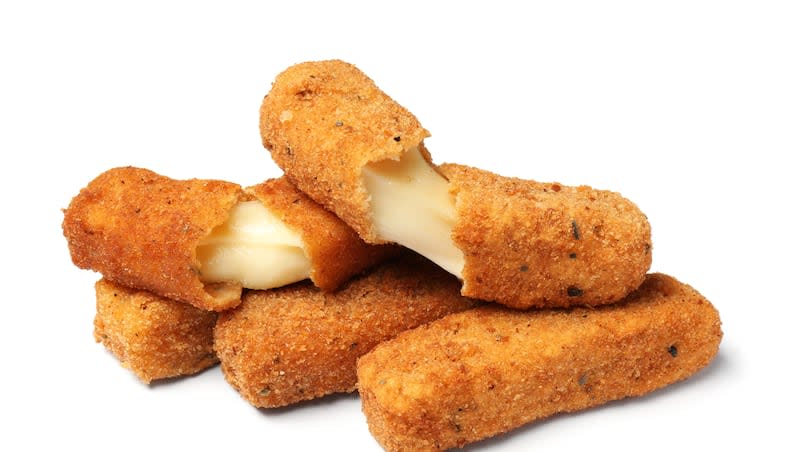The 6 worst foods for high cholesterol

Nearly 2 in 5 adults in the United States suffer from high cholesterol, per the Centers for Disease Control and Prevention. High cholesterol can lead to heart disease and stroke — two leading causes of death in the U.S. Through diet and other lifestyle choices, cholesterol can be managed. Avoiding highly processed foods and unhealthy fats may be beneficial to cholesterol levels.
“High cholesterol can be inherited, but it’s often the result of unhealthy lifestyle choices, which make it preventable and treatable. A healthy diet, regular exercise and sometimes medication can help reduce high cholesterol,” per the Mayo Clinic.
While dietary changes can help lower cholesterol, speaking to a medical professional is the best option in improving cholesterol health.
Here are some of the worst foods for high cholesterol.
‘Bad’ cholesterol vs. ‘good’ cholesterol
Cholesterol is carried through blood by proteins called lipoproteins. There are two types of these lipoproteins — one which is considered “bad” and the other “good,” per the CDC. The two lipoproteins are:
LDL (low-density protein): This is considered the “bad” cholesterol, although it makes up the majority of cholesterol in the body. High levels of LDL in the blood can increase risk of cardiovascular disease and stroke.
HDL (high-density protein): This is considered the “good” cholesterol. It helps remove other forms of cholesterol from the bloodstream. High levels of HDL in the blood is associated with lower risk of cardiovascular disease and stroke.
“With high cholesterol, you can develop fatty deposits in your blood vessels. Eventually, these deposits grow, making it difficult for enough blood to flow through your arteries. Sometimes, those deposits can break suddenly and form a clot that causes a heart attack or stroke,” per the Mayo Clinic.
Avoiding certain foods can aid in managing how much LDL cholesterol is in the bloodstream.
1. Fried foods
French fries, fried chicken, mozzarella sticks and other fried foods have high levels of cholesterol and saturated fat from the oil they get cooked in, per Cleveland Clinic. The foods we fry are typically high-calorie — making them doubly dangerous to cholesterol.
For a healthier option, try replicating the crunch of fried foods using an air fryer instead.
2. Red meat
Beef, lamb, pork, veal and mutton are all considered red meat. These meats are naturally high in saturated fat and cholesterol. According to the World Cancer Research Fund, you should limit red meat consumption to three servings per week.
“Growing research has shown negative health impacts with frequent consumption of red meat, especially processed red meat,” warns registered dietitian Julia Zumpano, per Cleveland Clinic.
Eating red meat in moderation is not harmful to health, but consuming large amounts of red meat is associated with higher risk of heart disease and some cancers, and can increase “bad” cholesterol levels, per Harvard Health.
3. Processed meats
If you are watching your cholesterol, it may also be advantageous to limit processed meats due to their high levels of “bad” cholesterol.
“Hot dogs, sausage, and bacon use the fattiest cuts of red meat, and therefore tend to be high in cholesterol and saturated fat,” per Harvard Health. “Bacon and sausage made with turkey or chicken might seem healthier, and they are somewhat lower in cholesterol than the red meat versions, but they’re not cholesterol-free.”
4. Baked goods
Mass-processed baked goods like packaged cookies, pastries and cakes are loaded with trans fats and sugar, per Medical News Today. According to the American Heart Association, trans fats increase LDL cholesterol and decrease HDL cholesterol — and can increase risk of heart disease, Type 2 diabetes and stroke.
5. Sugary drinks
Soda, energy drinks and other sugary drinks can be dangerous to high cholesterol levels. A 2020 study from the Journal of the American Heart Association reported that frequently drinking sugar-sweetened beverages can worsen cholesterol levels over time.
“We were very interested in how consumption of different types of beverages may contribute to changes in blood lipids. There is evidence from other observational studies that higher consumption of sugar-sweetened beverages is linked to greater cardiovascular disease risk,” Danielle Haslam, first author of the study, told Healthline.
Participants of the study who drank sugary beverages experienced a 98% higher chance of having low levels of HDL “good” cholesterol.
6. Refined carbs
When consumed frequently, highly processed carbohydrates — foods like white bread, breakfast cereals, some pastas and candy — may raise cholesterol and increase risk of heart disease. A study from The American Journal of Clinical Nutrition found that diets high in processed carbohydrates increases risk of diabetes, obesity and heart disease. The study also reports that those with diets lower in processed carbs had healthier levels of cholesterol.
7. Fast food
Regularly eating fast food can increase levels of “bad” cholesterol. A study published by the Archives of Disease in Childhood found that people who ate fast food at least once per week had a significant increase in LDL cholesterol compared to individuals who rarely ate fast food.

